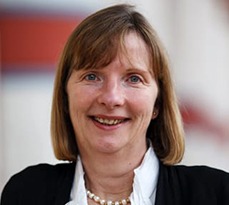A study co-authored by Helen Haugh of Cambridge Judge that finds a ‘long present’ in the thinking of African tea producers wins a Responsible Research in Management Award from the Academy of Management.

Songwriters have long found imprecision and elusiveness in what might seem something that is exactly measured: time. Think of songs like “Tomorrow is a Long Time” by Bob Dylan, “Does Anyone Really Know What Time it Is?” by Chicago, and “Who Knows Where the Time Goes?” by Fairport Convention.
Academics have also long contemplated the nature of time, particularly past, present and future time perspectives. That’s because time perspective clearly influences behaviour – including the trade-off between short-term and long-term spending, savings, investment and other economic activities.
An award-winning study
A study co-authored by Helen Haugh of Cambridge Judge Business School that takes a novel look at time – finding that “present” time perspective is “richer than has been described previously” – has been named a 2022 winner of the Responsible Research in Management Award by the Organization and Management Theory Division of the prestigious Academy of Management.
Helen is Associate Professor in Community Enterprise and Research Director at the Cambridge Centre for Social Innovation at Cambridge Judge.
Sustainable development in East Africa
The paper, which focuses on tea producers in East Africa, outlines how sustainable development research has traditionally assumed that organisations make trade-offs between benefits now and benefits later – and challenges those assumptions given the circumstances faced by African tea producers. Farmers in a country such as Kenya, the world’s third-largest tea producer and the largest tea exporter by volume, face adversity ranging from frost and drought to social and political unrest.
“Prior time research describes the present as a ‘moment’ in time, which allows managers to juxtapose the present against the future to make the intertemporal trade-offs for sustainable development,” the study says. “However, our tea producers did not see the future as a trade-off with the present. We discovered that they see duration in the present – what we call a ‘long present’.”
This finding is significant for sustainable development research because the prior assumptions held that organisations facing extreme resource constraints would be present-focused, thus making sustainable development difficult. But in finding that the “present is long”, the study identifies connections between various processes that can continuously ease resource shortages and thus allows different thinking about sustainable development.
Fairtrade funds and tea production
The study revolves largely on the relationship between the tea producers and Fairtrade, the organisation that promotes sustainable development through ethical certification. Fairtrade envisioned that the social premium funds paid to the tea producers would be invested in long-term projects such as building schools and clinics, but the tea producers sometimes used the funds instead to make immediate improvements such as investment in concrete benches used for drying tea leaves to prevent premature fermentation.
“Our analysis showed that the tea producers that redirected the funds held a very different time perspective from the time perspective of Fairtrade, and from that which is espoused in the existing literature on time perspectives,” the study says. “Fairtrade hoped to help producers leapfrog from the undesirable present to a more desirable future by sacrificing immediate benefits. However, some of our tea producers enacted what we call a long-present perspective that did not discriminate between the present and the future.”
For example, when asked by the study’s field researcher about the greatest challenges tea producers were currently facing, several farmers described issues such as school fee payments or annual production cycles.
“Producers perceived the present as an extended duration, rather than a moment. They described the present as comprising ups and downs across seasons and other social and biophysical cycles, never as a point in time,” the study says. “Whether we perceive time as a discrete moment or an extended duration has important consequences.”
The award-winning study – entitled “No Time Like the Present: How a Present Time Perspective Can Foster Sustainable Development” – was co-authored by Anna Kim, who earned her PhD at Cambridge Judge and is now an Associate Professor at Desautels Faculty of Management of McGill University in Montreal; Pratima Bansal of Ivey Business School at Western University in Ontario, Canada, and Helen Haugh of Cambridge Judge Business School.


